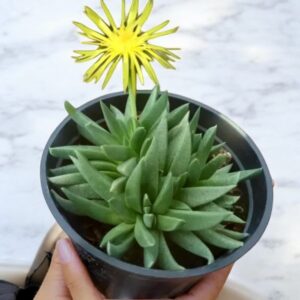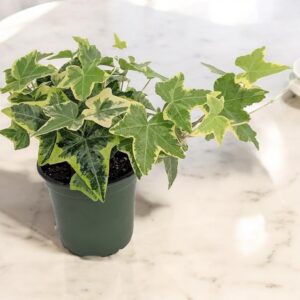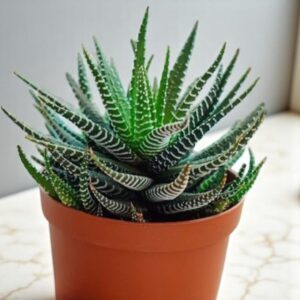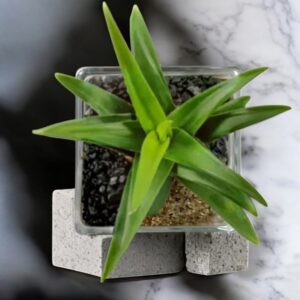Echeveria pallida
₹150.00 Original price was: ₹150.00.₹99.00Current price is: ₹99.00.
In stock
Important Notice: When replacing damaged plants, you must record an unpacking video of the package within 12 hours of delivery.
🌿 All plants are shipped bare-rooted.
Echeveria pallida is a beautiful succulent with pale blue-green leaves arranged in tight rosettes.
How to grow and care for Echeveria pallida:
- Light: Provide bright, indirect sunlight or partial sun. Echeverias prefer plenty of light, but intense, direct sunlight for prolonged periods can scorch their leaves. If growing indoors, place the plant near a sunny window.
- Temperature: Echeveria pallida thrives in moderate to warm temperatures. Protect them from frost and extremely cold conditions, as they are not frost-tolerant.
- Soil: Use a well-draining succulent or cactus potting mix. A mixture of regular potting soil with perlite, pumice, or coarse sand can also work well to enhance drainage.
- Watering: Allow the soil to dry out almost completely between waterings. Overwatering can lead to root rot and other issues. During the active growing season (spring and summer), water when the top inch of soil is dry. In the dormant winter months, water even less frequently, only when the soil is dry to the touch.
- Humidity: Echeveria pallida is adapted to dry environments and does not require high humidity. Normal household humidity levels are usually sufficient.
- Fertilizer: During the growing season, you can feed your Echeveria pallida with a balanced liquid succulent fertilizer diluted to half-strength. Apply the fertilizer once a month or as directed on the product label. Avoid fertilizing during the dormant winter period.
- Potting and Repotting: Repot your Echeveria pallida when it outgrows its current container or every 2-3 years. Choose a slightly larger pot with drainage holes and fresh succulent potting mix. Repotting is best done during the growing season.
- Pruning: Remove any dead or wilted leaves by gently plucking them off near the base. Echeverias do not require heavy pruning, but you can remove any leggy or elongated growth to maintain a compact shape.
- Pest and Disease Control: Echeverias are generally hardy and resistant to pests and diseases. However, keep an eye out for common succulent pests like mealybugs or aphids. If you notice any infestations, treat them promptly with appropriate insecticidal soap or neem oil.
- Propagation: Echeveria pallida can be propagated through offsets (baby plants that grow around the base of the main rosette) or leaf cuttings. To propagate using offsets, gently separate them from the mother plant and allow the cut edges to callous over before planting them in well-draining soil. Leaf cuttings should also be left to callous before being placed in the soil.
Always adjust your care routine based on the specific needs of your plant and your local climate. With proper care, Echeveria pallida will reward you with its stunning foliage and charming rosette shape.
You can also visit our store to buy succulents online , buy succulent planters, buy fertilizers online with various types of indoor plants and hardy succulents . You can refer to our informational site for more details about plant varieties.Click here for agricultural knowledge information.







